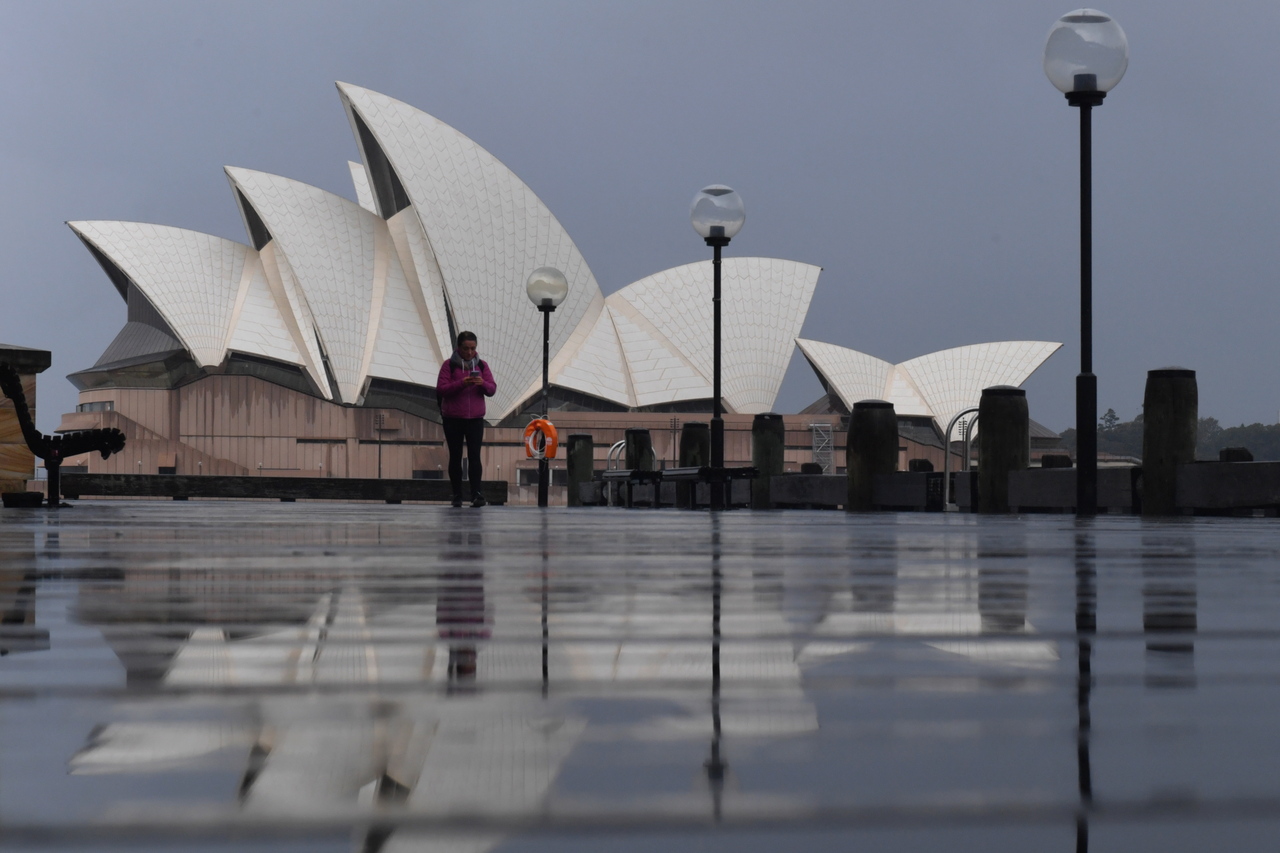S'pore-Australia travel bubble plans delayed, Sydney lockdown 'highly unlikely' to be lifted as Covid-19 cases rise
Sign up now: Get insights on Asia's fast-moving developments

New South Wales recorded 77 new infections on July 11.
PHOTO: EPA-EFE
SYDNEY (BLOOMBERG, AFP, REUTERS) - Sydney's lockdown is "highly unlikely" to be lifted as scheduled next week as virus cases continue to rise, the authorities said on Sunday (July 11).
The Australia state of New South Wales recorded 77 new infections on Sunday, the highest daily tally reported in the current outbreak. State Premier Gladys Berejiklian said she expected cases to top 100 a day soon, as she again called on the community to respect lockdown rules.
"Do not leave your home unless you absolutely have to," Ms Berejiklian said at a press conference on Sunday. "We are at a critical point."
Ms Berejiklian warned that stay-at-home orders were expected to remain in place unless there was a dramatic turnaround.
"Given where we're at and given the lockdown was supposed to be lifted on Friday, everybody can tell it's highly unlikely at this stage, given where the numbers are," she said.
The majority of new infections are linked to known cases, with the government particularly concerned about the spread of the virus within homes and between extended family households.
The state reported its first death of the current outbreak - a woman in her 90s who acquired the virus in her home. This is Australia's first reported death from the virus since April 12.
The total number of cases reported during the spread of the delta variant is 566.
The neighbouring state of Victoria, which on Sunday recorded its 11th straight days without new infections, said it was closing its borders with New South Wales and the Australian Capital Territory to prevent spreading of the virus.
With no swift end to the lockdown in sight, attention is turning to the economic damage caused by the lockdown. AMP Capital chief economist Shane Oliver said he estimates the city's closure is costing A$1 billion (S$1 billion) a week.
"If the Sydney lockdown is extended much beyond the current three weeks it will progressively cause more damage and take longer to recovery from," he said in a note to investors last Friday. "It will also require more government lockdown assistance."
Australia's slow vaccine roll-out, which has been dogged by a lack of supplies, means it is still largely unprotected against the virus. Just 26 per cent of the country's roughly 26 million people have received their first jab, compared with 68 per cent in Britain, according to Bloomberg's Vaccine Tracker.
Sydney's virus outbreak means plans for an Australian-Singapore travel bubble have been delayed until at least the end of the year, the Australian Trade Minister said on Sunday.
While opening the travel corridor remains a priority, plans are on hold, Mr Dan Tehan told the Sydney Morning Herald.
"It has been put back due to the third wave of the virus," he said. "The hope might be towards the end of the year that you could look at a travel bubble with Singapore."
International borders are expected to stay shut to most travel until mid-2022.
Singapore and Australia had agreed to work towards an air travel bubble, and both countries would lay the groundwork for resuming two-way travel in a safe and calibrated manner, the prime ministers of both countries said last month after the sixth Australia-Singapore Annual Leaders' Meeting.
Prime Minister Lee Hsien Loong and his Australian counterpart Scott Morrison also expressed hope that students from Singapore could be the first to travel under a pilot arrangement so that they could continue their studies, which have been disrupted by Covid-19 travel restrictions, before a full travel bubble is in place.
At a joint news conference after their meeting, PM Lee said they discussed the fight against Covid-19 and resuming travel between the two countries.
"We discussed how two-way travel between Singapore and Australia can eventually resume, in a safe and calibrated manner, when both sides are ready," he said.
PM Lee added that there was a need to prepare the infrastructure and processes for such travel.
PM Lee added: "It starts with mutual recognition of health and vaccination certificates, possibly in a digital form. When all the preparations are ready, then we can start small with an air travel bubble to build confidence on both sides."
Echoing PM Lee, Mr Morrison said that while there was some time before Singapore and Australia could open up the air travel bubble, the two countries were working on putting systems in place to do so.
The leaders also acknowledged the importance of open borders to a post-pandemic recovery.
On students getting the first opportunity to travel, they said such a move could be a good opportunity to test the systems before widening travel.
Mr Morrison said: "We really do want to focus on those students coming, as a first wave, a first tranche - as part of the exercise of piloting how these systems can work most effectively when we get to the next phase."
While the number of cases in Sydney is low compared to most global cities, Australia has taken a zero-tolerance approach to widespread community transmission throughout the pandemic
Authorities have been quick to impose restrictions in an attempt to stamp out clusters early, and the country's borders remain largely shut, with only about 10 per cent of Australians fully vaccinated.
The government launched a new advertising campaign on Sunday encouraging people to "arm yourself" against Covid-19 by getting jabbed, though vaccines are yet to be offered to most under-40s.
Chief Medical Officer Paul Kelly said other "graphic" adverts would be broadcast in Sydney urging people to follow stay-at-home orders, as police step up enforcement amid reports that flouting of the rules was widespread.


